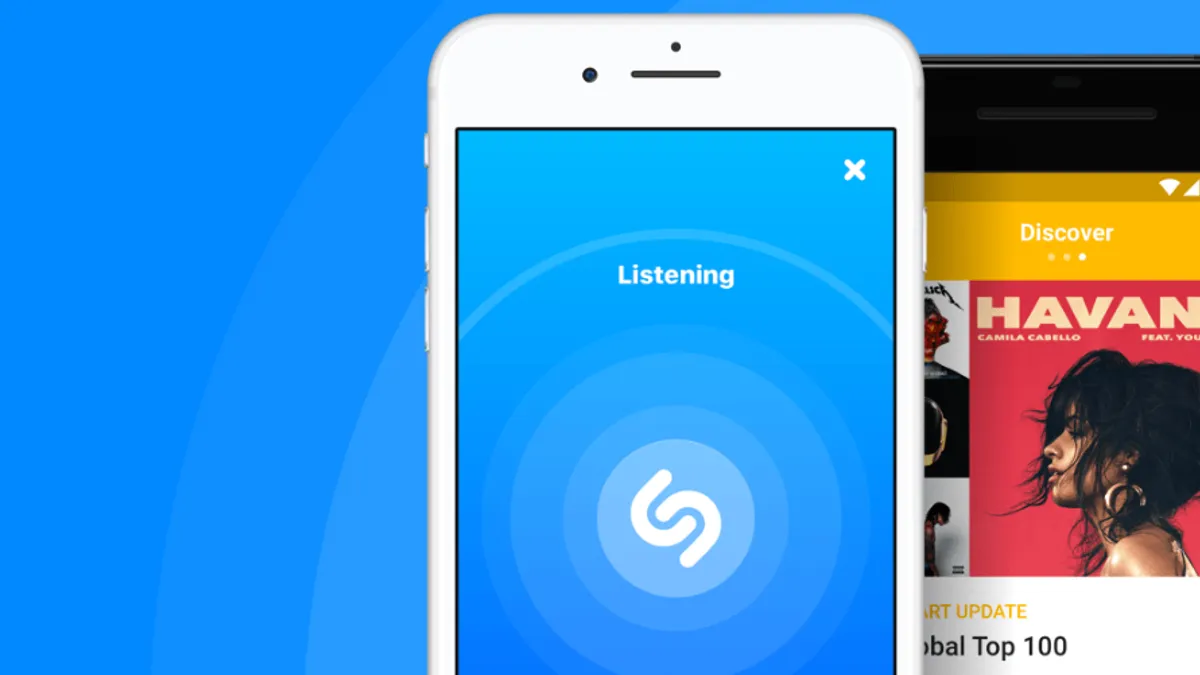UPDATE: Sept. 24, 2018: Apple has finalized its acquisition of Shazam, according to a company statement. The app — which is used over 20 million times each day around the world — will soon be ad-free for all users.
Brief:
- Apple's acquisition of popular song-recognition app Shazam yesterday received approval from European authorities, according to an EU Merger Regulation press release. Antitrust regulators spent six months studying whether the takeover would give Apple an unfair advantage over other streaming music services like Spotify, per TechCrunch.
- The European Commission first voiced concern in February that the deal would mean that Shazam, which listens to and identifies songs, would stop referring users to rival services or that Apple would use the app to take users away from competitors.
- The commission also looked at how Shazam would share data about competitors with Apple, departing from typical antitrust enforcement that focuses on how a merger affects customers, The New York Times reported. EC antitrust chief Margrethe Vestager said regulators had analyzed Shazam's user and music data and determined that the acquisition wouldn't reduce competition in the digital music streaming market.
Insight:
For the past four years years, Shazam has powered the music-identification capabilities of Apple's Siri voice without having an adverse effect on competing streaming services like Spotify, which had 83 million paid subscribers and 180 million monthly active users, up 30% from Q2 2017. Shazam makes money from ad sales and collecting fees for referrals to music services like Spotify or Apple, and the European Commission determined that Apple and Shazam are complementary services that don't compete with one another.
The Apple-Shazam deal mainly boils down to access and user data. The deal has received scrutiny especially after the EU started to enforce the strict General Data Protection Regulation in May. The EC's Vestager has said that antitrust enforcement needs to weigh the value of data, as consumers trade their personal information for free services like social media networking and services like Shazam. Before this year, European regulators had approved deals among data-rich companies, including Facebook's takeover of WhatsApp and Instagram, in addition to Microsoft's deal for LinkedIn.
Europe's antitrust authorities have developed a reputation for having the strictest rules on the technology space, using their power to fine tech giants like Amazon, Facebook, Google and chip-maker Qualcomm. Ireland two years ago was ordered to collect 13 billion euros ($15.1 billion) in back taxes from Apple.














